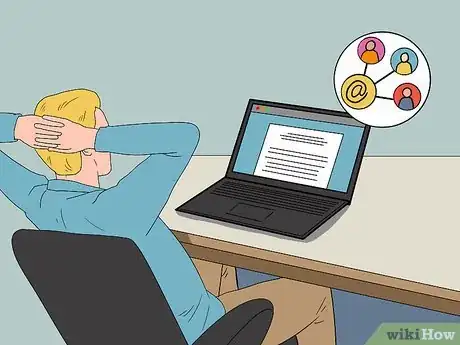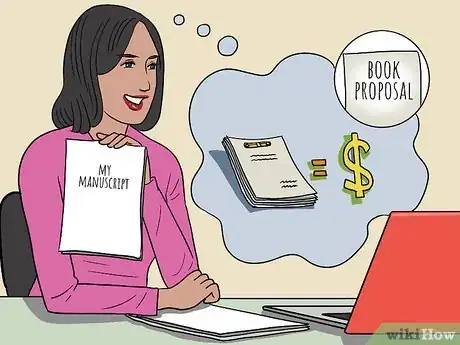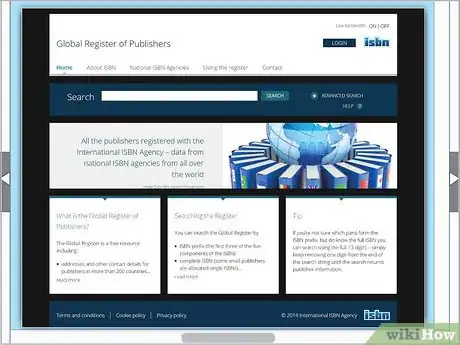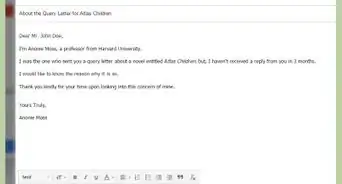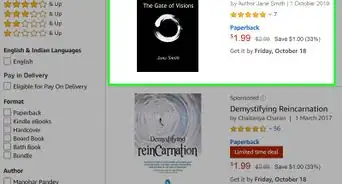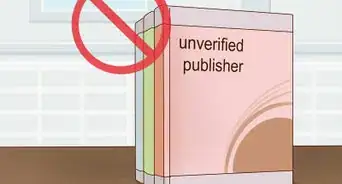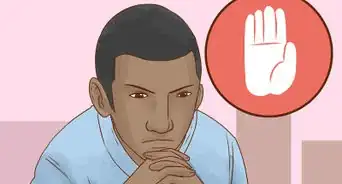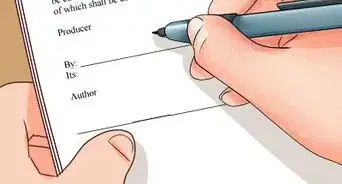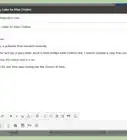This article was co-authored by Zachary Green. Zachary Green is an Entrepreneurship Coach, Author, and U.S. Marine Corp Veteran. With over 10 years of experience as an entrepreneur, he specializes in helping people transform their businesses, relationships, and lives. Zachary’s book, Warrior Entrepreneur, focuses on how warrior traits can help entrepreneurs, leaders, and others battle through adversity and accomplish their missions. Zachary was featured in Entrepreneur Magazine, on the front page of Yahoo.com, MSN.com, and in USA Today, along with numerous other local and national media outlets, and was named Entrepreneur of the Year by Governor John Kasich. Zachary was also selected by the Obama White House as one of 10 entrepreneurs to represent the United States at the Global Entrepreneur Summit. He was also featured in the US Playing Cards Frontline Leaders playing card series as one of 52 veteran entrepreneurs. Zachary earned a BA in Marketing and Sports Management from Bowling Green State University in Ohio. He won the Ohio Chamber of Commerce Entrepreneur of the Year in 2013, the SBA Ohio Small Business Exporter of the Year in 2016, a Spartan Distinguished Alumni Award in 2017, and a President’s E Award in 2019.
There are 8 references cited in this article, which can be found at the bottom of the page.
This article has been viewed 29,614 times.
Publishing a debut novel or nonfiction book is the dream of every aspiring writer. While this goal might seem daunting, there are definitive and concrete steps on the path towards making your dream a reality: from actually creating a finished product to developing the necessary submission materials, all the way through actually finding an agent and publisher. By following a few simple strategies, your book will be available on shelves in no time!
Steps
Preparing a Submission Package
-
1Write a query letter that introduces your protagonist and conflict. Your query letter is the most important part of the submission package you will be sending to prospective literary agents. Therefore, you want to be thorough and professional while also demonstrating that you have a unique quality that sets you apart from other writers in the genre. Give agents a reason to think you are exceptional! The key components of the query letter are:[1]
- General information about your book: title, word count, genre
- Description of the hook: introduce the protagonist and main conflict
- Brief bio: relevant writing credits, credentials, and awards.
-
2Prepare a synopsis of your book with an overview of the narrative. A book synopsis provides an overview of your novel’s entire narrative arc. This document reveals any major flaws in plot, conflict, and character development, and agents use it to determine if the events of the novel are realistic and make sense. A book synopsis should be approximately one page, and accomplish the following three purposes:[2]
- Show the character arc and motivations of the protagonist
- Give a clear idea of the core conflict, as well as what is driving it
- Demonstrate how the conflict is resolved, and how the protagonist has changed
Advertisement -
3Build your writer’s platform by sharing your work with readers. A writer’s platform refers to the size of that writer’s existing audience. It is important to build up your own writer’s platform prior to sending your submission package because this demonstrates that you already have access to readers of your book. Good strategies for building a writer’s platform include:[3]
- Writing a blog
- Building your social media presence
- Sharing your work with local writing communities
-
4Find an agent by assessing your own creative values. Before choosing your representation, you should be confident that the agent shares your values. Ask yourself whether you prefer an agent with more resources and a large clientele or an independent agent who will invest more time in your work; whether you want an agent who will be active in the creative process or one who will focus primarily on the financial aspect instead. Then, identify strong candidates using online databases. These include:
- PublishersMarketplace.com
- AgentQuery.com
- QueryTracker.net
- WritersMarket.com
Looking for Publishers
-
1Create a book proposal that highlights your marketability. Before you can find a publisher for your book, you need to prepare a book proposal. The book proposal is similar to the book synopsis, but it is more focused on financial viability — after all, you need to demonstrate that the publisher will make money from publishing your book. The four main components of a book proposal are:[4]
- A strong introduction, re-stating your writing credentials
- An outline of the structure of your book with a chapter-by-chapter analysis
- An overview of other books that address similar themes and are competing for the same readership
- An assessment of the market for your genre, as well as a specific marketing plan to sell your book
-
2Identify prospective publishers by researching other books in your genre. The most straight-forward way of finding a publisher for your manuscript is by researching books that are similar to yours. The publishers of these books are the ones who specialize in your genre and, therefore, are more likely to consider publishing your book as well. Query these publishers directly with your submission package.[5]
-
3Make publishing contacts by attending conferences and reaching out to peers. Publishing and writing conferences offer valuable opportunities to make connections within the publishing world. While publishing conferences offer greater access to the industry, writing conferences provide a more intimate setting for you to meet prospective publishers -- albeit on a much smaller scale. Additionally, writing conferences will allow you to meet other published writers who can then connect you with proven publishing resources.[6]
-
4Find prospective publishers by searching online databases. Online databases are yet another resource for contacting publishers. While these are the least personal option, they provide the greatest access to prospective publishers. Some trustworthy online databases include:
Choosing a Publisher
-
1Evaluate publishers by assessing their previous success. A publisher’s main responsibility after purchasing a manuscript is to market the book and, ultimately, sell as many copies as possible. A good indicator of publishing success, therefore, is to check your prospective publishers' book sales. Additionally, you should consider contacting other writers who have been published by the same publishers. Many are willing to advise fellow writers about a publisher’s strengths.[7]
-
2Compare philosophies by asking questions about their practice. When working with traditional publishers, writers give up a lot of creative control. Therefore, you should ask prospective publishers to articulate their philosophies and objectives for your manuscript. What matters to them, artistically? How do they plan on honoring your own wishes? Does it matter to you how much say you have in the final product? If so, find a publisher who is willing to listen.[8]
-
3Assess compatibility by attending a face-to-face meeting. When you have narrowed your list of prospective publishers to a few remaining finalists, you should arrange face-to-face meetings with all of them. In addition to getting definitive answers to your questions, these meetings allow you to determine if your personalities and styles are compatible. This is no small determination — after all, you will be interacting very closely with your agent![9]
Expert Q&A
-
QuestionHow hard is it to get an agent for a book?
 Zachary GreenZachary Green is an Entrepreneurship Coach, Author, and U.S. Marine Corp Veteran. With over 10 years of experience as an entrepreneur, he specializes in helping people transform their businesses, relationships, and lives. Zachary’s book, Warrior Entrepreneur, focuses on how warrior traits can help entrepreneurs, leaders, and others battle through adversity and accomplish their missions. Zachary was featured in Entrepreneur Magazine, on the front page of Yahoo.com, MSN.com, and in USA Today, along with numerous other local and national media outlets, and was named Entrepreneur of the Year by Governor John Kasich. Zachary was also selected by the Obama White House as one of 10 entrepreneurs to represent the United States at the Global Entrepreneur Summit. He was also featured in the US Playing Cards Frontline Leaders playing card series as one of 52 veteran entrepreneurs. Zachary earned a BA in Marketing and Sports Management from Bowling Green State University in Ohio. He won the Ohio Chamber of Commerce Entrepreneur of the Year in 2013, the SBA Ohio Small Business Exporter of the Year in 2016, a Spartan Distinguished Alumni Award in 2017, and a President’s E Award in 2019.
Zachary GreenZachary Green is an Entrepreneurship Coach, Author, and U.S. Marine Corp Veteran. With over 10 years of experience as an entrepreneur, he specializes in helping people transform their businesses, relationships, and lives. Zachary’s book, Warrior Entrepreneur, focuses on how warrior traits can help entrepreneurs, leaders, and others battle through adversity and accomplish their missions. Zachary was featured in Entrepreneur Magazine, on the front page of Yahoo.com, MSN.com, and in USA Today, along with numerous other local and national media outlets, and was named Entrepreneur of the Year by Governor John Kasich. Zachary was also selected by the Obama White House as one of 10 entrepreneurs to represent the United States at the Global Entrepreneur Summit. He was also featured in the US Playing Cards Frontline Leaders playing card series as one of 52 veteran entrepreneurs. Zachary earned a BA in Marketing and Sports Management from Bowling Green State University in Ohio. He won the Ohio Chamber of Commerce Entrepreneur of the Year in 2013, the SBA Ohio Small Business Exporter of the Year in 2016, a Spartan Distinguished Alumni Award in 2017, and a President’s E Award in 2019.
Entrepreneurship Coach It can be difficult! Realistically, agents aren't going to talk to you unless of 1 of 2 things happens: 1) You've already published a book that's sold over 5,000 copies or 2) You have a good following on Facebook, Pinterest, Twitter, and Instagram. At the end of the day, agents are exceptionally lazy—they only want to be working with people they don't have to do much work with.
It can be difficult! Realistically, agents aren't going to talk to you unless of 1 of 2 things happens: 1) You've already published a book that's sold over 5,000 copies or 2) You have a good following on Facebook, Pinterest, Twitter, and Instagram. At the end of the day, agents are exceptionally lazy—they only want to be working with people they don't have to do much work with. -
QuestionHow do I network with publishers?
 Zachary GreenZachary Green is an Entrepreneurship Coach, Author, and U.S. Marine Corp Veteran. With over 10 years of experience as an entrepreneur, he specializes in helping people transform their businesses, relationships, and lives. Zachary’s book, Warrior Entrepreneur, focuses on how warrior traits can help entrepreneurs, leaders, and others battle through adversity and accomplish their missions. Zachary was featured in Entrepreneur Magazine, on the front page of Yahoo.com, MSN.com, and in USA Today, along with numerous other local and national media outlets, and was named Entrepreneur of the Year by Governor John Kasich. Zachary was also selected by the Obama White House as one of 10 entrepreneurs to represent the United States at the Global Entrepreneur Summit. He was also featured in the US Playing Cards Frontline Leaders playing card series as one of 52 veteran entrepreneurs. Zachary earned a BA in Marketing and Sports Management from Bowling Green State University in Ohio. He won the Ohio Chamber of Commerce Entrepreneur of the Year in 2013, the SBA Ohio Small Business Exporter of the Year in 2016, a Spartan Distinguished Alumni Award in 2017, and a President’s E Award in 2019.
Zachary GreenZachary Green is an Entrepreneurship Coach, Author, and U.S. Marine Corp Veteran. With over 10 years of experience as an entrepreneur, he specializes in helping people transform their businesses, relationships, and lives. Zachary’s book, Warrior Entrepreneur, focuses on how warrior traits can help entrepreneurs, leaders, and others battle through adversity and accomplish their missions. Zachary was featured in Entrepreneur Magazine, on the front page of Yahoo.com, MSN.com, and in USA Today, along with numerous other local and national media outlets, and was named Entrepreneur of the Year by Governor John Kasich. Zachary was also selected by the Obama White House as one of 10 entrepreneurs to represent the United States at the Global Entrepreneur Summit. He was also featured in the US Playing Cards Frontline Leaders playing card series as one of 52 veteran entrepreneurs. Zachary earned a BA in Marketing and Sports Management from Bowling Green State University in Ohio. He won the Ohio Chamber of Commerce Entrepreneur of the Year in 2013, the SBA Ohio Small Business Exporter of the Year in 2016, a Spartan Distinguished Alumni Award in 2017, and a President’s E Award in 2019.
Entrepreneurship Coach Be memorable! The best opportunity to get someone to invest in you is to get them to remember who you are. You could do this with a really unique business card (like one made with metal or leather), or you could dress in a memorable outfit or wear a memorable accessory.
Be memorable! The best opportunity to get someone to invest in you is to get them to remember who you are. You could do this with a really unique business card (like one made with metal or leather), or you could dress in a memorable outfit or wear a memorable accessory. -
QuestionCan an 11 year old publish a book?
 Donovan ChoCommunity AnswerYes! Just find an agent. Anybody of any age can publish a book. They don't care about age, just your content.
Donovan ChoCommunity AnswerYes! Just find an agent. Anybody of any age can publish a book. They don't care about age, just your content.
Expert Interview
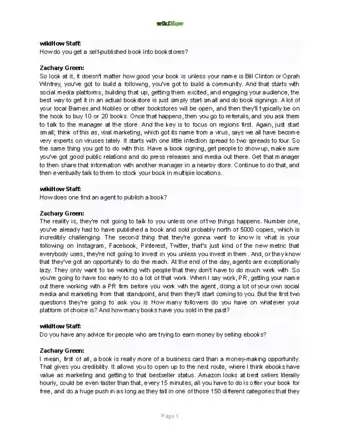
Thanks for reading our article! If you'd like to learn more about publishing a book, check out our in-depth interview with Zachary Green.
References
- ↑ https://www.janefriedman.com/query-letters
- ↑ https://www.janefriedman.com/the-complete-guide-to-query-letters-nonfiction
- ↑ https://www.janefriedman.com/author-platform-definition
- ↑ http://www.publishingtalk.eu/writing/how-to-write-a-winning-book-proposal
- ↑ https://jerichowriters.com/how-to-get-published/#option2
- ↑ https://www.janefriedman.com/start-here-how-to-get-your-book-published
- ↑ https://www.janefriedman.com/evaluate-small-publisher
- ↑ https://www.janefriedman.com/start-here-how-to-get-your-book-published
- ↑ http://www.publishingtalk.eu/getting-published/how-to-get-published


